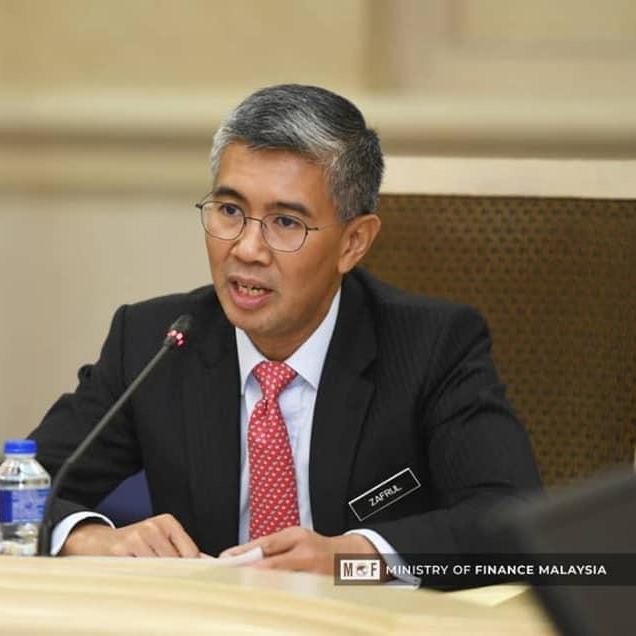KUALA LUMPUR, April 26 — Finance Minister Tengku Zafrul Aziz confirmed today that the RM3 billion allocation he announced last November for Covid-19 vaccines was never slotted in the country’s 2021 budget.
Instead, the overall RM5 billion allocation for the national Covid-19 vaccination programme, including an RM2 billion increase from the Pemerkasa economic stimulus package, will be taken out from the National Trust Fund (KWAN). KWAN is a savings fund collected from Malaysia’s natural resources, predominantly contributions from oil and gas giant Petronas.
“If the RM5 billion cost of vaccination is not covered with KWAN’s funds, the government’s borrowing obligations will be far higher and the fiscal deficit may increase to 6.2 per cent of the gross domestic product (GDP),” Zafrul said in his slides for a press briefing today.
He explained that the initial RM3 billion allocation for Covid-19 vaccination announced during his Budget 2021 speech last year comprised RM2.3 billion for purchase of vaccines and RM700 million for the immunisation programme.
This RM3 billion allocation was subsequently increased with extra allocations announced last March under the Pemerkasa economic stimulus package to RM5 billion, comprising RM3.5 billion to purchase vaccines and RM1.5 billion for the vaccination programme.
Malaysia’s targeted vaccine coverage also increased from 80 per cent of the population to securing additional vaccine stocks to cover another 40 per cent of the population with the extra RM2 billion allocation.
The target completion date for the national Covid-19 immunisation programme (PICK) was also expedited from February 2022 to December this year.
The government plans to vaccinate 25.6 million adults, or 80 per cent of Malaysia’s 32-million population, comprising 500,000 frontline workers; 9.4 million people aged 60 and above, those with chronic diseases, and the disabled; and 15.7 million adults aged 18 and above.
Zafrul explained that the purchase of additional stocks from various Covid-19 vaccine developers took into account the uncertainty of vaccine deliveries and also to cover the potential need for booster shots.
“The increase in administration costs is due to outsourcing to private medical practitioners, the rental of premises for vaccination sites (PPV), and allowance for volunteers.”
He also stressed that the amendment to the National Trust Fund Act 1988, made through emergency legislation without parliamentary approval, only authorised the use of KWAN funds for vaccine procurement purposes.
As of December 31 last year, KWAN’s net assets totalled RM19.5 billion, comprising RM10.4 billion in Petronas contributions and RM9.1 billion in consolidated return on investments.
“The estimated RM5 billion for vaccine procurement only uses the generated return on investments, but the main RM10.4 billion contribution remains untouched,” said Zafrul.
He pointed out that the government inherited more than RM1 trillion in debt and liabilities, citing RM40 billion in obligations from 1Malaysia Development Berhad (1MDB) that is enough to cover the purchase of coronavirus vaccines eight times over.
The finance minister claimed that the Perikatan Nasional administration had limited fiscal space to fulfill the government’s legacy obligations, while also facing financial constraints in tackling the Covid-19 epidemic.
“Vaccination is the key to economic recovery and the objective of the formation of KWAN is to protect future generations. There is no better move to protect the people than to achieve herd immunity through vaccination.”








